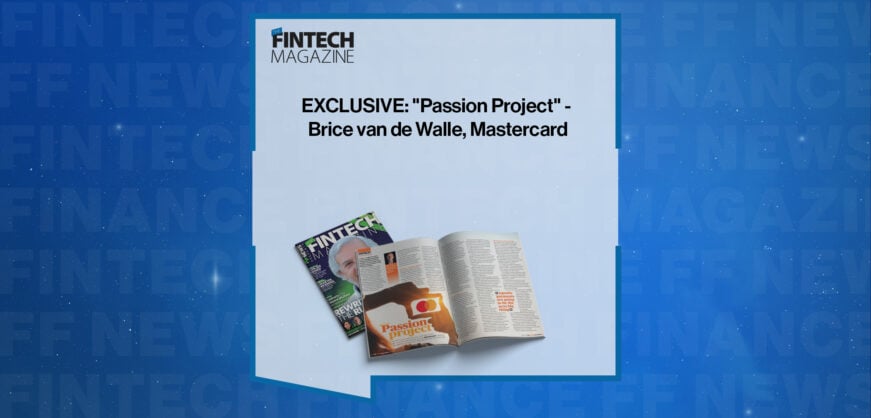Breaking News

Is Bitcoin legally classed as property or not in the UK? A call for clarity
By Thomas Hulme, Commercial Disputes and Litigation Solicitor at Mackrell. specialising in Blockchain and Cryptoassets
Cryptoassets and Bitcoin
Cryptoassets have been in existence since the creation of Bitcoin (BTC) in 2008. Since then, we have seen the rise in the price of BTC, the creation, cloning and forking of cryptoassets.
At the end of 2017, one BTC was bought and sold at the price of almost $20,000. The price for one BTC today is circa $8,633. Although the price has more than halved, $8,633 is still a significant price for one BTC, although each BTC is divisible by 0.00000001.
Further, it has been suggested that the number of wallets which contain more than 1,000 BTC has increased.
With the above taken into consideration, it is clear that individuals and business have “possession” of BTC and place a considerable amount of value in them. But what happens if their BTC are lost, stolen or subject to a transaction which goes awry.
Property
In typical situations, the classification of something being property is not a thought that would cross one’s mind. If I sell a car, there is no dispute that a car is a piece of personal property.
Intellectual property (IP) is another form of property, which is intangible, however laws and infrastructure has developed to accommodate this form; such as the ability to register certain forms of IP.
The concept of property, in law, comes from the Law of Property Act 1925 which defines property as “anything in action, and any interest in real or personal property”. Thereafter, the nature of the rights associated with property were considered by Lord Wilberforce in the case of National Provincial Bank v Ainswroth.
Lord Wilberforce stated that a property right was “definable, identifiable by third parties, capable in its nature of assumption by third parties, and [must] have some degree of permanence or stability.”
The common law defines personal property as one of two categories:
i. a chose in possession; or
ii. a chose in action.
A chose in possession is a tangible object, such as a car. It can be seen, touched and identified.
A chose in action is a right to a possession, which can be, enforced by legal action such as a debt or the money in one’s bank account.
Although the majority of cryptoassets are definable, identifiable by third parties and has some degree of stability, they are not tangible. Further, they are not pieces of IP (however it is possible that IP can be registered or written into the code of a cryptoasset by way of implementation on blockchain systems).
At this point, you may think, “Well this is all very interesting and intellectual, but what does it matter”.
Are cryptoassets property?
If one “owns” 10 BTC, worth circa £66,887 and one were transacting with another party with the broad terms that one will purchase an object for 10 BTC.
10 BTC is transferred to another party and they give me possession of the object. However, on delivery of the object, it is not the object that was agreed upon. What are my options?
If BTC is not property, nor is it IP, what right or action can one bring to take possession of it?
Case law
There have been two known judgments from the courts of England and Wales which consider the question of if BTC is property. It is imperatively important to note the distinction that this is in reference to BTC and not cryptoassets generally.
Liam David Robertson v Persons Unknown
In this case, Robertson is a cryptoasset investor and had accumulated circa 100 BTC. These BTC were stolen.
Robertson was able to locate the BTC to a particular wallet, in control of the well-known cryptoasset exchange and custody agent, Coinbase. This is due to the fact that each BTC or divisive BTC is identifiable (unlike cash) and that on the BTC blockchain, you can trace the movement of every BTC.
Robertson applied to the Commercial Court in London seeking that a freezing order is placed upon the BTC located within Coinbase so that they would not be dissipated.
The basis of this application was that Bitcoin was legal property and its title was with Robertson.
For the purpose of this application, BTC was allowed to be viewed as property.
Vorotyntseva v Money-4 Ltd (T/A Nebus.com) and others
This case was heard in 2018, however, the judgment was only published on 13 November 2019.
This matter was an application for a freezing order and involved BTC and the cryptoasset Ethereum (ETH).
The order was granted as a “very preliminary order” by Justice Birss.
Mr Justice (sir) Birss is a judge in the courts of England and Wales who is known to have a particularly astute understanding and knowledge of technology.
It is important to note that the question of whether BTC or ETH is property was not brought up and therefore gives no further certainty to the rights over cryptoassets.
A further hearing will take place in which an argument may be put forward that BTC or ETH is or is not personal property.
Other cryptoassets
BTC and ETH are two particular cryptoassets, which are similar in some respect but are different in others.
At this stage, it is impossible to rely on the judgments above as they have not delved into the characteristics of cryptoassets individually and it is important moving forward that cryptoassets should not be given a broad definition and rights assigned to them due to the nature and individuality of each cryptoasset.
BTC and ETH, for example, are created on a public blockchain and is, therefore, open-source.
There are however private blockchain systems which subsequently create cryptoassets. These systems may not be branded as cryptoassets; however, they are for all intents and purposes. One example is the Ripple Network.
The Ripple Network uses a system by issuing cryptoassets (which is more akin to a chose in action rather than a chose in possession) which are redeemable for an underlying asset, such as a number of Great British Pounds or BTC.
This allows the Ripple Network to be used to transfer wealth efficiently, and the asset, which the issued cryptoasset represents, can be redeemed by original the person that the cryptoasset was issued, or the person who it has been transferred to.
In circumstances such as this, greater thought must be had into the rights and classification of the cryptoasset used to represent the underlying asset and furthermore, the underlying asset itself, if it is a cryptoasset.
Conclusion
As it stands, in the law and courts of England and Wales, the classification and rights of cryptoassets are still uncertain, however, it appears that more cases are being brought to the court to assess these circumstances.
Taking into consideration the cases cited above, it appears that BTC may be likely to be considered as personal property, but until a final judgment is given of which the question is argued in a substantial matter, there remains a level of uncertainty.
- EXCLUSIVE: “Passion Project” – Brice van de Walle, Mastercard in ‘The Fintech Magazine’ Read more
- FreedomPay Drives Global Merchant Innovation Read more
- FIS Brings AI-Powered Advancements to Seamless, Personalized Digital Banking Experiences Read more
- Citi Ventures Invests in BVNK to Power the Next Generation of Financial Infrastructure Read more
- Nearly Two-Thirds of Global Retailers Say Payment Method Flexibility Drives Revenue Growth, ACI Worldwide Survey Finds Read more













